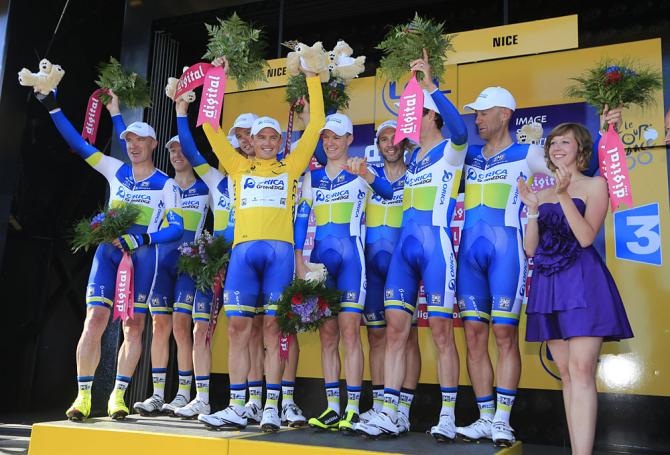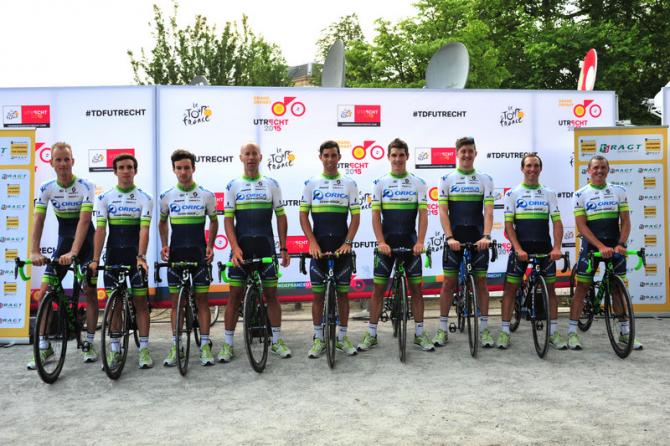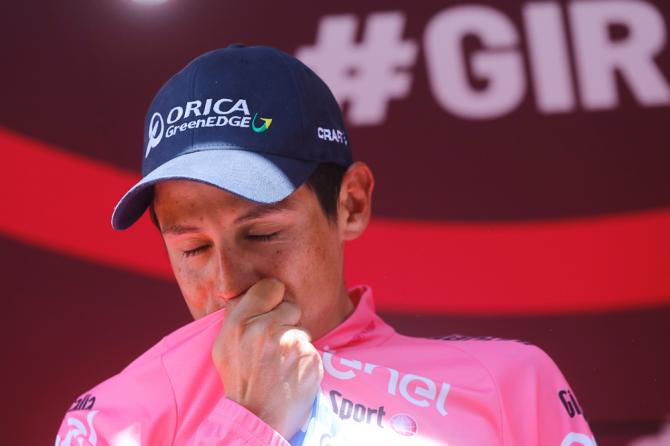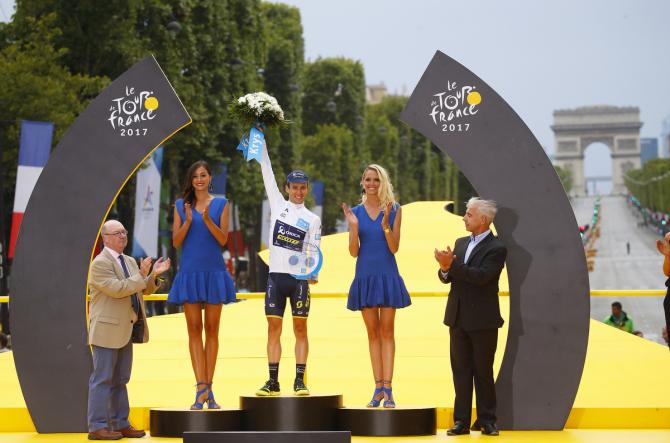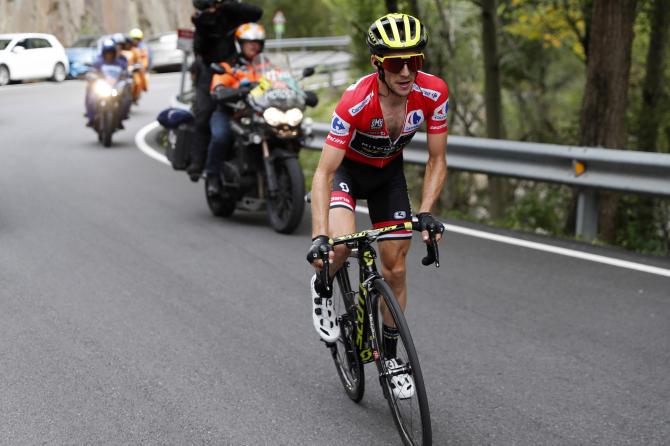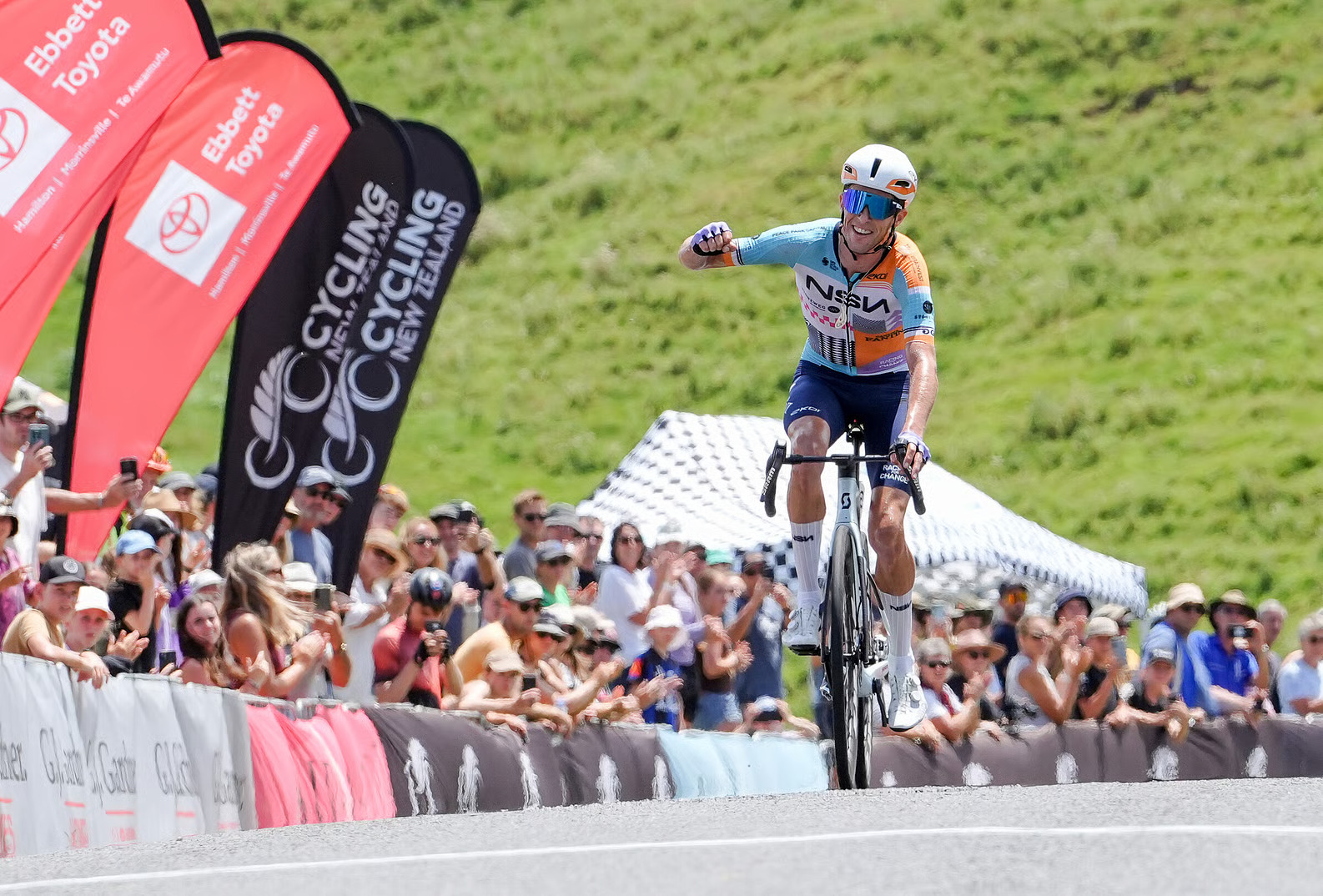Metamorphosis: GreenEdge's journey to Grand Tour success
Mitchelton-Scott's Matt White on the highs and lows of the team's past five years
The latest race content, interviews, features, reviews and expert buying guides, direct to your inbox!
You are now subscribed
Your newsletter sign-up was successful
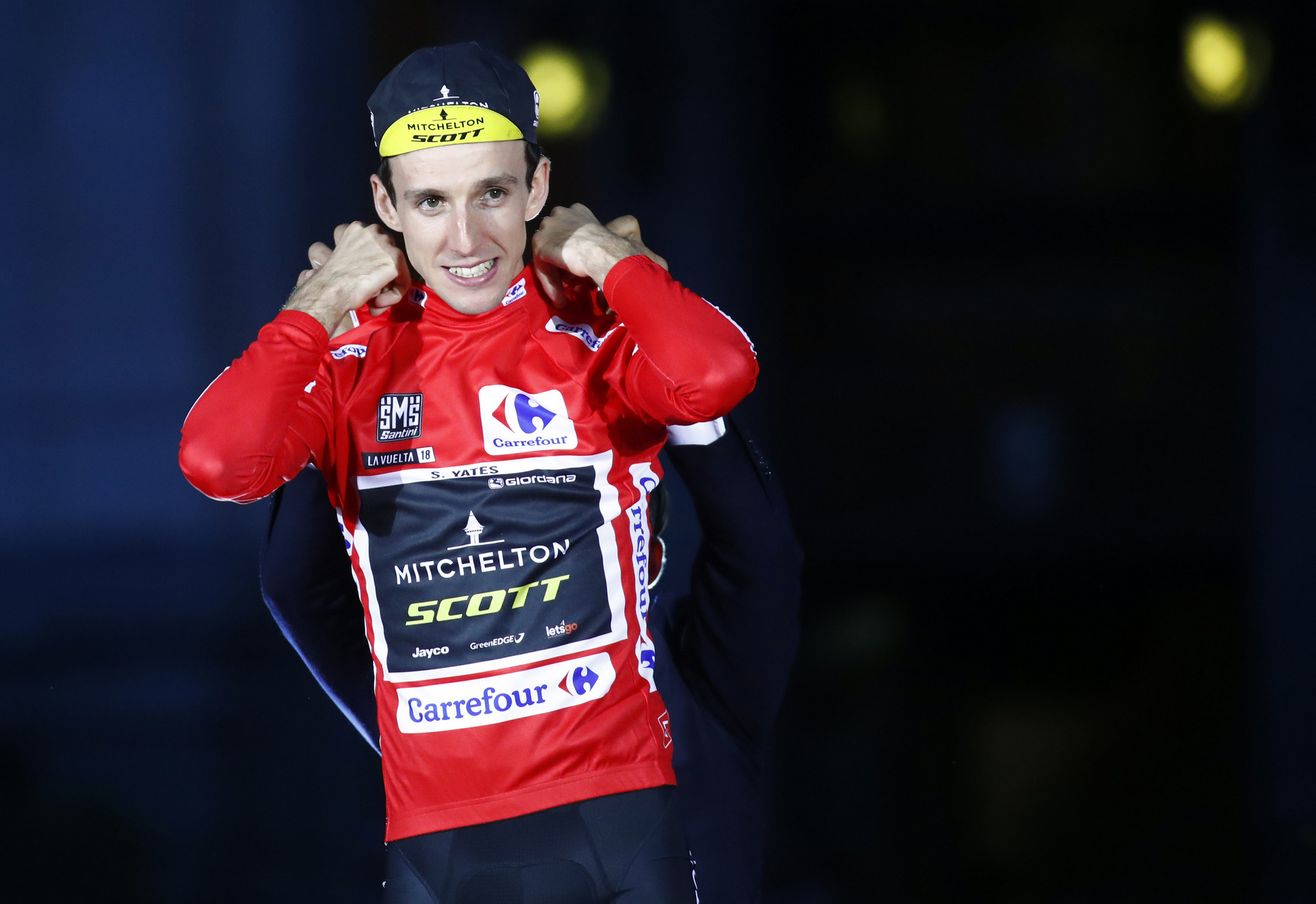
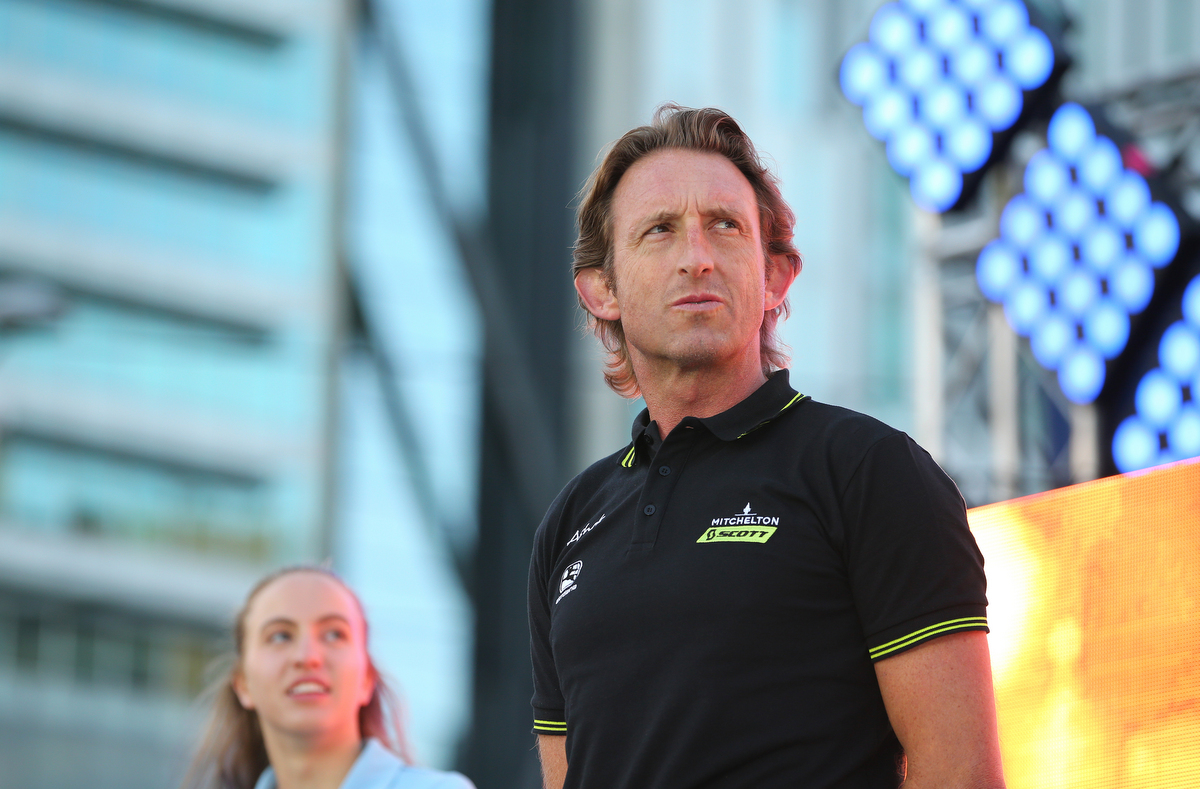
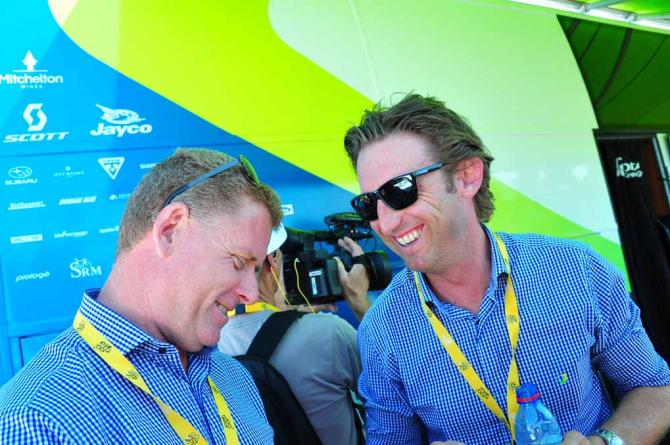
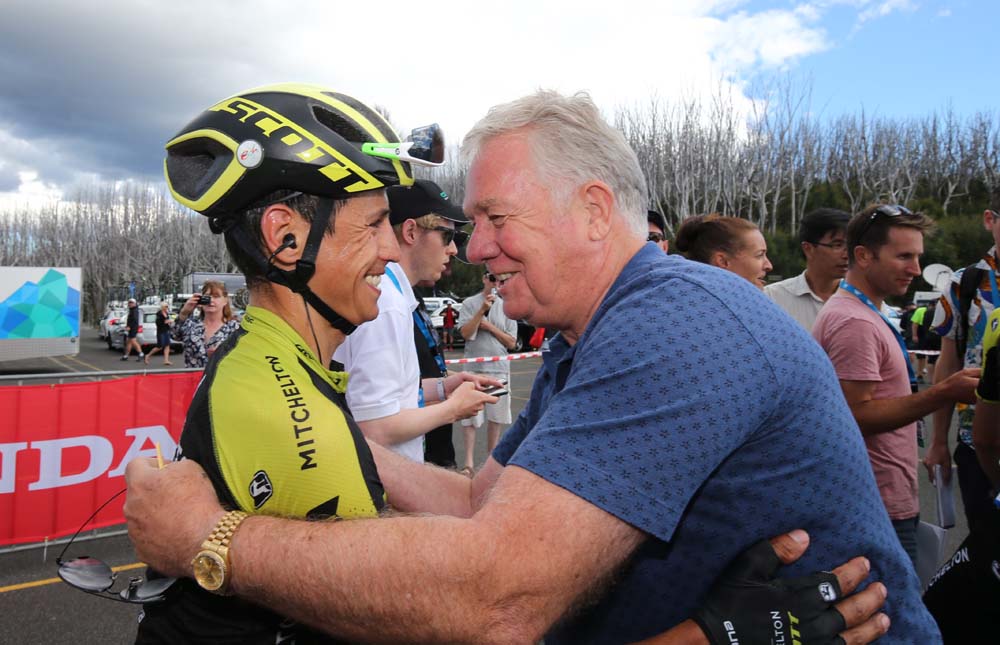
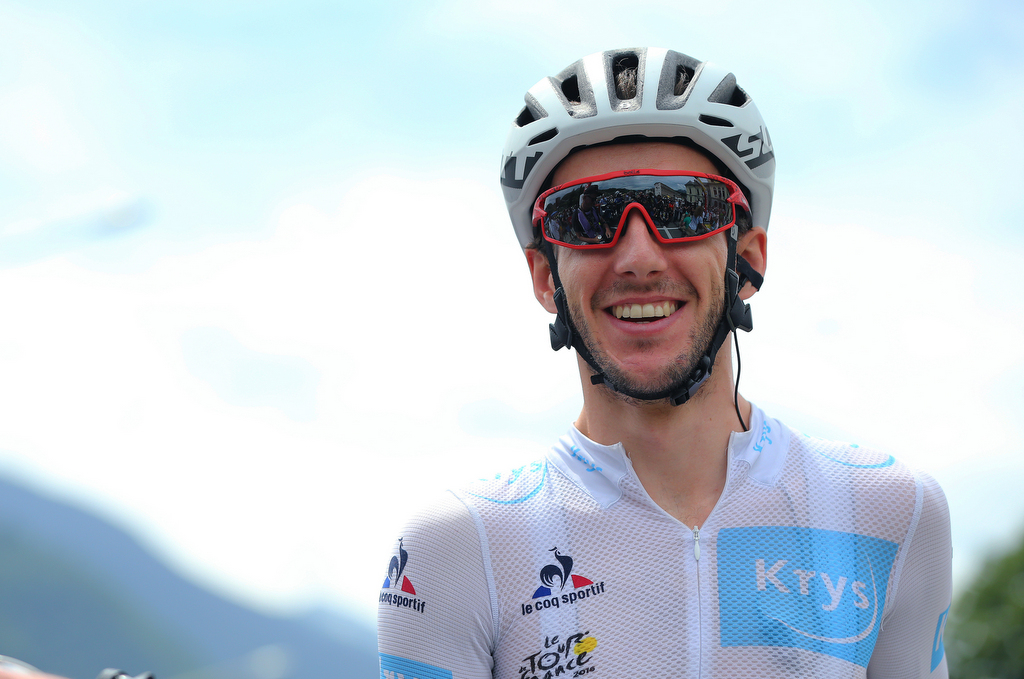
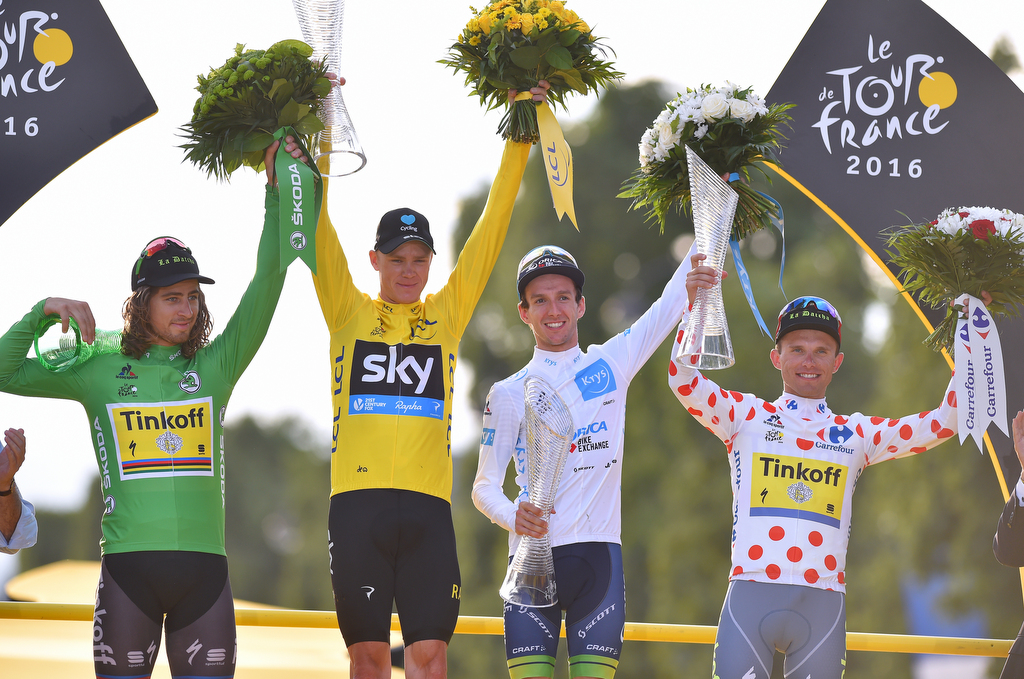
When Simon Yates stepped onto the podium in Madrid's Plaza de Cibeles and the British national anthem played out for the winner of the 2018 Vuelta a España, it was a landmark achievement for the 25-year-old, but also a significant milestone from a collective point of view.
It would have been unthinkable a few years ago, but the Mitchelton-Scott team had won a Grand Tour. Once a motley crew of stage hunters and team time trial contenders – successful ones at that – they had embarked on a journey to Grand Tour success and, after several highs and lows, it had come to fruition.
"When we started out, we wanted to win races, and with the budget we had and the riders that were available, that was the team we had. And we won races, but then after a couple of years we wanted to develop into a Grand Tour team," senior directeur sportif Matt White tells Cyclingnews.
Having changed name in 2013, thanks to a new title sponsor, from GreenEdge to Orica-GreenEdge, the key moment came at the end of that second season with the signings of the Yates brothers – Simon and Adam – and the Colombian Esteban Chaves.
Simon and Adam Yates had both turned pro after success in the under-23 ranks, whiles Chaves – a couple of years older – stepped up to WorldTour level after recovering from a career-threatening injury. The team has revolved around those three ever since, with Chaves claiming two Grand Tour podiums, Simon Yates winning this year's Vuelta, and Adam Yates finishing fourth at the Tour de France in 2016.
"At the time, Australia wasn't producing Grand Tour riders, although there has been one who has been super successful," White says, referring to Cadel Evans, who won the 2011 Tour de France with the BMC team. "In 2013 we needed to make a move and that was to look outside the box, and look outside Australia.
"We found Esteban, and the Yates brothers came to us. Two very different processes. Esteban was off the radar because of his big crash, and Simon and Adam were very successful as U23s. I don't know why they came to us. There were 20 other teams they could have chosen, but they contacted us. They liked what they saw, and they wanted opportunities, and obviously at Sky it was very regimented. As young guys, let's be realistic, they wouldn't have got the same opportunities there – that's a fact. Anyway, we jumped at it. We jumped at it very quickly."
The latest race content, interviews, features, reviews and expert buying guides, direct to your inbox!
The young trio became the focal point of the team, and the other riders on the team slowly but surely started to bed in as domestiques for stage race leaders, with targeted signings made in the last few years to bolster the Grand Tour arsenal. That change in direction wasn't always a smooth process, however. Riders like Simon Gerrans and Michael Matthews, who had been responsible for the team's big successes – in one-day races and Grand Tour stages – found themselves increasingly further from centre stage, and both left the team at the end of the 2016 season. A similar scenario has played out with Caleb Ewan – one of the hottest young sprinting prospects who has struggled for Grand Tour selection and is now on his way to Lotto Soudal.
"Sure, there have been some tough decisions over the last couple of years, and we've received a bit of criticism for who we've let go," White says. "But we're not a national team. We're not riding for Australia here. This is an international team that has an Aussie DNA – that'll never change – but just because you have an Australian passport doesn't mean you have a contract here for life.
"We have to make decisions – business decisions – that work best for the team. Sometimes you've got to cut people off, let people go, and let them go elsewhere to achieve what they want to achieve. But we have to create an environment that supports what we need to do. We can't fit everything in. We don't have an unlimited budget. Some decisions we've made have been tough but, as you can see here, they've been successful ones."
2014 & 2015: The first steps
While the Yates twins were turning pro, Chaves had already raced at Pro Contintenal level with the Colombia-Coldeportes team, but it was a debut in the WorldTour ranks for all three in 2014, and they all had their first taste of Grand Tour action.
It wasn't in the original plan, but Simon, after recovering from a broken collarbone at the Tour of Turkey in April, was drafted into the Tour de France squad as a late replacement. He was scheduled to ride 10 days before pulling out, but that was extended to two weeks. Adam Yates, who'd won the overall title in Turkey, and Chaves, who'd won a stage at the Tour of California, both went to the Vuelta a España and – given the less stressful environment – went the full three weeks.
"That was about laying the foundations, giving them the exposure," says White. "It's been that gradual exposure over the last few years that has led to where we are now. Changing that mentality of a winning team to a Grand Tour team is not going to happen overnight. It's a gradual process to educate the guys in how to do things a little bit differently."
In 2015, both Yates brothers were taken to the Tour de France, and this time went all the way to Paris.
"That was the year we had the disaster on stage 3, where we had Michael Albasini, Daryl Impey and Simon Gerrans all out of the Tour after three stages. That turned out to be an opportunity for the Yateses, and off the top of my head the guys each got two top 10s in mountain stages, as 22-year-olds."
Indeed, Simon Yates took eighth place on stage 3, which finished on the Mur de Huy, and then took 10th on the stage that finished on the Croix Neuve in Mende, and 11th at Alpe d'Huez. Similarly, Adam finished seventh on the Mûr-de-Bretagne on stage 8, and then took seventh again two days later on the stage that finished with the climb of the Col de Soudet, before taking 10th place on the stage to Pra-Loup. It was an impressive display by the two youngsters.
Chaves, a couple of years older, had a double dose of Grand Tour racing, combining the Giro d'Italia and the Vuelta a España. He got into a couple of breaks in Italy, but Spain was the scene of his breakthrough. He won stage 2 on the steep finish at the Caminito del Rey, and then won again on another uphill finish four days later. He lost the red jersey on stage 9 but finished the race strongly to claim fifth overall in Madrid.
"There's a big thing called P, and that's potential. A lot of talented guys have potential, but being talented at U23 level doesn't necessarily correlate with being a Grand Tour winner. There have been plenty of talented U23s who've done nothing," says White. "But what we saw in the first two years was very impressive. With the Yates brothers and Esteban, we knew we had winners in the ranks there."
That winter, the team signed Ruben Plaza, Amets Txurruka and Carlos Verona to strengthen the squad in the mountains, while Chris Juul-Jensen also joined and would go on to be an important Grand Tour domestique, as would Australian youngster Jack Haig.
2016: The breakthrough
"The 2016 season was an incredible year for us – at the Giro, Tour and Vuelta," says White.
It started off with a podium at the Giro for Chaves, who also won a stage. When Steven Kruijswijk crashed dramatically on stage 19, Chaves rode into pink, although just 24 hours later he was usurped by Vincenzo Nibali on the final mountain stage. Although they had their first podium, the team had been within touching distance of a first Grand Tour win, but it wasn't as disappointing as it might have looked.
"Esteban had bronchitis, and he had been sick for three days before the finish, and I was actually scared we were going to lose everything," says White. "Actually, I was relieved we got second. The only thing that saved us is that we hid it quite well, and other guys, I think, were scared to attack us any earlier because of how good Esteban usually is at altitude. If they'd attacked us 10 minutes earlier, we wouldn't have finished on the podium, so we only just held on there."
The Tour de France went awry before it had begun, as Simon Yates was handed a doping ban for an asthma drug, although the UCI stated it was "non-intentional". He was sidelined, but Adam shone in his absence, finishing fourth overall in Paris in the white jersey of best young rider. He might have won a stage, but for a 1km banner collapsing on him on stage 7, although he still moved towards the top of the GC standings and resiliently stayed there.
"It was crazy because it wasn't planned. We knew Adam had talent, but to finish fourth in the Tour, his second Tour, is amazing," says White. "Actually, the team wasn't prepared to ride for the GC there – we were still going with a stage hunting mentality – but then we got through the first few days, the tone changed down south, and Adam was in a good place straight away. It was big learning curve for him, and for the team."
The 2016 Vuelta saw Simon Yates win a stage on his comeback from his ban, while Chaves finished third overall to make it two Grand Tour podiums in one glittering season. In contrast to the Giro, Chaves was outside the podium positions ahead of the final mountain stage but, using teammates to help build an attack from nearly 50km out, managed to jump above Alberto Contador at the last.
"We were actually out of the game there, and we only rolled Contador on the last mountain stage," says White. "That was tactics and team strength that got us back onto the podium, so that was really gratifying. We finished that one on a high."
At the end of that season, Michael Matthews, a key breadwinner, left the team, and Roman Kreuziger was brought in as a key GC domestique.
2017: A tough year
After the highs of 2016, White describes 2017 as the team's most unsuccessful year. Plans were derailed from the start, and things never really slotted back into place. Chaves had been slated to lead the line at the Tour, while the Yates twins would go together to the Giro, and all three would head to the Vuelta.
"We wanted to give the experience of racing in different climates, with different altitudes, different styles of racing, because to win the Tour de France you have to be good at everything," says White. "Also for the Yates twins, that was their first time riding two Grand Tours in one season, which was an important part of their development."
When Chaves suffered a knee injury in the spring, however, Simon was moved to the Tour to cover bases. He produced a solid ride to finish seventh overall and keep the white jersey in the family, while Adam finished ninth at the Giro in what was a solid ride, but not really a step forward after his ride at the Tour the previous year. For Chaves, meanwhile, his physical problems were compounded by personal ones with the death of a close friend, and just finishing the Tour seemed like a victory for him.
All three went to the Vuelta, but none finished in the top 10. The Yates brothers both plummeted down the standings around the half-way mark, while Chaves, who was fifth on the eve of the final week, eventually finished 11th.
"That was probably our worst Grand Tour, actually. It was going OK, but then the wheels fell off," says White. "It was different things. After running seventh in the Tour four weeks earlier, Simon was never going to back up four weeks later as a 24-year-old. Esteban… Whether he had glandular fever a year ago, we're not sure, but it was a similar thing there – he was up there on the GC and then the wheels fell off. We found out this year he has glandular fever but may have had it last year – we don't know. Then the problem with Adam was that there was too long a break between the Giro and the Vuelta. He likes racing, and felt there was too much of a gap.
"The 2017 season was probably our most unsuccessful year. We went back and had a look at how we did things, and changed some things. We tended to always chase wins, and sometimes you have to prioritise. So we put more of a focus on the three Grand Tours. I think sometimes you have to send weaker teams to certain races. I think we were still only one win short of our best year, but this year the quality of the wins has been higher.
"Sometimes you've got to prioritise," continues White. "That's been the difference. Also putting a bit of pressure back on the other guys to improve as well. When a team starts, there's that excitement, that buzz. We're six years in now, so you have to create a bit of a different environment, where guys are back hungry again and competitive for their spots in the big races."
The team added another climber that winter, in Mikel Nieve, while two sprinters in Magnus Cort and Jens Keukeleire moved on.
2018: From despair to glory
Everything came together in 2018 at the Vuelta, but not without some bumps and bruises along the way. The Giro couldn't have started any better as Chaves and Simon Yates went one-two on the first summit finish of the race, with Simon going into the pink jersey and Chaves third overall. Another brilliant display saw Yates win at Gran Sasso d'Italia on stage 9 and Chaves move up to second.
But disaster struck just 24 hours later as Chaves lost 25 minutes on the road to Gualdo Tadino. He would later be diagnosed with glandular fever.
Yates kicked on and kept swinging, winning two more stages in one of the most dominant and aggressive displays of Grand Tour racing in recent memory. It was clear he'd made a huge leap forward and was now a true Grand Tour contender. He even navigated the stage 16 time trial handsomely, and the final few stages were considered a formality. But, after a glimmer of weakness on stage 18, the wheels fell off spectacularly on the road to Bardonecchia the following day, and he rolled into Rome in a sorry 21st place overall.
"What we learned from the Giro is that every move you make, you pay for eventually," says White. "If the Giro was two weeks long, Simon would have won it. I was looking at some of the videos, and that stage in Sappada... It was, like, 15 to 20 minutes alone to take 30 to 40 seconds, and he was wrecked. You could see it in the interviews. Then you go and do it again, and again. It all adds up in a Grand Tour, and you can't do that."
The Tour was even more disappointing as Adam Yates was blown out of the GC battle before it had begun, falling away on the first mountain stage in what White attributes to problems adapting to the heat. However, the Vuelta soon rolled around, offering a chance to put those Giro lessons into practice. Yates took the lead with victory at Les Praeres on stage 14, but, even if he was more restrained, he still went on the attack in the final two mountain stages when, with the red jersey on his shoulders, he didn't really need to.
"The Yates twins are naturally really aggressive riders," says White. "That doesn't always bode well for being the best three-week riders, so sometimes you have to pull them back. Sometimes the best three-week riders are quite boring riders because you can't throw it all out there day in, day out, and expect to back up for three weeks in a row.
"That's modern cycling. They're human. Sometimes we have to pull them back in, and that goes against their natural instinct. You can get away with it in a one-day race – Adam won the 2015 Clasica San Sebastian at 22 – and in one-week races, where there might be two mountain stages and a time trial, and that's the race. But over three weeks, with six to 10 mountain stage stages, two time trials, and then the accumulated stress, that's a different mindset."
Outside the team bus in Madrid, the beer flowed, the hugs multiplied, and the party started to take shape. Simon Yates had just spent the majority of his victor's speech thanking team owner Gerry Ryan and, reflecting on the highs and lows of the past seven years, White did the same.
"It is a great satisfaction. For everyone here. It's seven years of work. The thing is, we're not riding for an organisation here. One man supports us, as a personal passion. We have a different feeling riding for him, because Gerry had a dream of creating an Australian team that could achieve the biggest results in world cycling. The happiest thing is that Gerry could be here to enjoy this victory, and be in the car for three stages at the Giro. That's why he does it. It's a passion."
The team's transformation to Grand Tour winners is complete, but this is only a milestone, rather than a culmination.
"We've ticked some good boxes," says White, "but we've still got some boxes to go."
Patrick is a freelance sports writer and editor. He’s an NCTJ-accredited journalist with a bachelor’s degree in modern languages (French and Spanish). Patrick worked full-time at Cyclingnews for eight years between 2015 and 2023, latterly as Deputy Editor.
